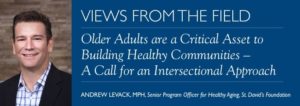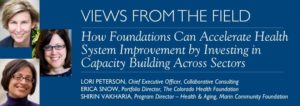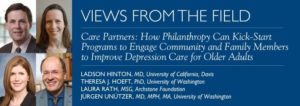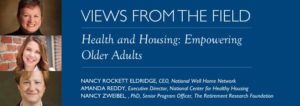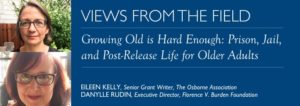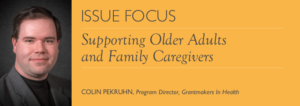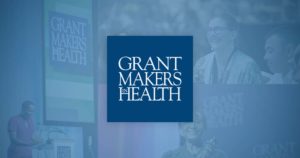Latest Resources
Older Adults are a Critical Asset to Building Healthy Communities – A Call for an Intersectional Approach
St. David’s Foundation considers the well-being of older adults as a fundamental aspect to our goal of building the healthiest community in the world. However, for many donors, supporting older adults is not a funding priority.
How Foundations Can Accelerate Health System Improvement by Investing in Capacity Building Across Sectors
At a time when the health care system is facing a host of challenges, many with attributes that are impossible to solve alone, we see organizations from across the health and social sectors combining their skills and expertise through interesting partnerships to crack the “impossible” together.
Care Partners: How Philanthropy Can Kick-Start Programs to Engage Community and Family Members to Improve Depression Care for Older Adults
Late-life depression is a pressing public health concern among an aging population facing increasing chronic health concerns. As many as 5 to 10 percent of older adults seen in a primary care health setting suffer from depression, which can last for months or even years, and is associated with both decreased quality of life and higher health care costs.
Growing Old is Hard Enough: Prison, Jail, and Post-Release Life for Older Adults
Sometimes a shift in perspective leads to far-reaching innovations, whether in policy, programs, or grantmaking.
Supporting Older Adults and Family Caregivers
Care for older adults with chronic, disabling health conditions has entered a new chapter, one with far-ranging implications for families, communities, health care, and even the economy. The current system does not adequately support the needs of those routinely providing extensive help with daily activities, delivering complex medically-related services, and coordinating health care and long-term services and supports.
Age-Friendly Communities: Cross-sector Collaboration at Work
For our communities to thrive and work for residents of all ages, we need to promote and support inclusive processes for engagement—processes that focus on improving communities for everyone as they age.
The Health Care Neighborhood: Philanthropy’s Role in Aging Well
Many primary care physicians do not feel confident in their capacity to meet their patients’ social needs, and they believe this impedes their ability to provide quality care. Despite evidence that social determinants such as education, employment, and economics can influence health outcomes, a service coordination gap remains.
Connect With Funder Peers on Older Adults
Interested in exchanging strategies, information, and questions with your funder peers? Sign up for GIH E-Forums.

